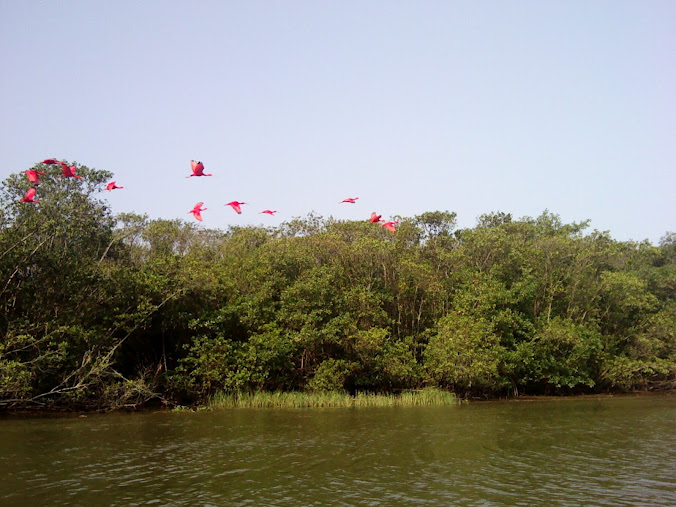RIO DE JANEIRO, BRAZIL – In an effort by Minister of the Environment Ricardo Salles, the National Environment Council (CONAMA) is preparing a set of revocations of rules that could affect up to 1.6 million hectares of sandbanks and mangroves throughout the country. These are permanent preservation areas near the Brazilian coast that have become of interest to the real estate sector and shrimp farmers.

At the meeting on Monday morning, the 23 councilors will analyze the proposal to revoke CONAMA’s Resolution 303, which establishes the protection of a minimum strip of 300 meters of sandbanks, in addition to mangroves. These are permanent protection areas. In the absence of this preservation, luxury hotels could be built in mangrove areas throughout the coastal region.
These protective measures have been in place in the country since 2002. Some of them, such as those that deal with areas where deforestation around rivers is banned, have already been incorporated by the Forest Code, in force since 2012. But the measure dealing with sandbanks and mangroves has not. “Little by little we are losing a whole legal framework that has been in place since before the 1988 Federal Constitution. It’s an unprecedented step backwards for the country”, alerted the manager of the SOS Mata Atlântica non-governmental organization, Malu Ribeiro. In her opinion, CONAMA should be increasing the biome’s protection area, not reducing it, as Minister Salles suggests.
In an opinion issued in March this year, the Ministry of the Environment’s legal counsel advocated the resolution’s complete revocation. Its main argument is that the rules are either repeated in the Forest Code or it has changed them. Consequently, they would expire, which would result in a conflict between the two rules. Since 2017, when the suggestion for revocation was made, the Federal Prosecutor’s Office has been issuing recommendations that this rule should not be changed. The prosecutors have a seat in CONAMA, but they are only entitled to speak, not to vote.
In addition to the changes in the resolution that deals with permanent preservation areas, CONAMA also intends to vote on new rules dealing with the burning of pesticide residues and others that change the licensing for irrigation. These administrative deregulations are among those that are not dependent on the approval of Congress.
In April, during a cabinet meeting that was eventually released as part of a police investigation against President Jair Bolsonaro, Minister Salles suggested that the pandemic moment, where press attention was focused on the Covid-19 issue, would be the perfect time to “change all the rules and simplify [environmental] regulations (…)”.
The probability of the advocated changes being approved is high. At the inception of the Bolsonaro administration, there was a significant change in the make-up of many Councils. There were 96 board members in the past, but today there are 23. Civil society organizations, which had 23 representatives and now have four, and the states, which had 27 and now have five, lost the most seats in the collegiate body. As a result, the majority of seats are held by the federal government itself, through Ministries, or by corporate bodies such as the National Confederations of Agriculture (CNA) and Industry (CNI).
These would not be the first environmental setbacks in 2020. In recent weeks, the Bolsonaro government has been controversial in fighting fires in the Pantanal and the Amazon. It was only last week, two months after the Pantanal fires intensified, that the Minister flew over the region and deployed teams from the Brazilian Institute of the Environment to inspect areas recording hot spots.
Bolsonaro’s statements on this issue aim to blame indigenous people and peasant farmers for the fires, despite failing to provide any evidence in this respect. Last week, the Federal Police indicted four farmers for patch burning in an area covering 25,000 hectares in the Pantanal of Mato Grosso.
Source: El País

